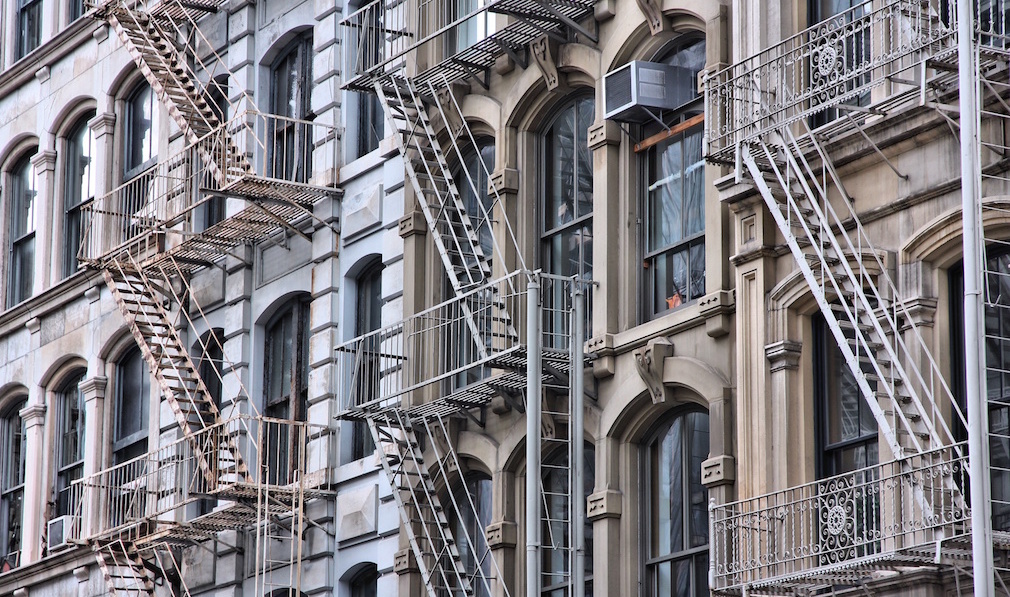A group of New York City real estate brokers made $21 million through a series of illegal Airbnb short-term rentals in flagrant violation of the city’s short-term rental laws, the city claims in a new lawsuit.
This week, New York City sued Metropolitan Property Group along with a number of associated entities and people, claiming that they operated at least 130 illegal short-term rentals in the city over the last several years.
According to the city, Metropolitan Property Group, its owners, and others were repeatedly warned to stop violating the city’s short-term rental laws, but chose to continue to do so, earning more than $21 million in illegal revenue from Airbnb.
In its lawsuit, the city claims that MPG operated illegal short-term rentals in at least five residential buildings the company owns, controls, manages, and operates in Manhattan for at least four years. According to NYC’s lawsuit, the units in those buildings are only allowed to be used as permanent residences.
But, according to the city, MPG’s alleged malfeasance goes beyond just those five buildings.
“Presumably through the relationships Defendant MPG and its real estate agents have allegedly cultivated, they have controlled, managed, operated, offered and advertised illegal short-term rentals within the Subject Buildings as well as at least 30 other permanent residential buildings in Manhattan since at least 2014 with an estimate of at least 130 different apartments converted from permanent residences to transient accommodations,” NYC states in its lawsuit.
It is illegal under New York law to rent out a unit in most buildings for less than 30 days unless the tenant is present during the time of the rental, but according to the city, MPG frequently rented out entire units on Airbnb.
All in all, the city claims that MPG is responsible for almost 13,700 illegal short-term rental reservations, which generated a total of approximately $21 million in revenue from 2015 to 2018, and deceiving almost 76,000 guests who booked their accommodations through Airbnb.
The city also claims that MPG and its operators went so far as to create 18 additional corporate entities for the purposes of skirting Airbnb’s rules and the city’s laws.
“Defendants MPG and MPG Brokers often utilized identical contact information and inaccurate addresses to set up these numerous distinct Airbnb host accounts and listings, in clear contravention of the online platform’s stated restrictions on the number of host accounts and listing addresses to be utilized by any one individual or entity,” the city claims.
Additionally, the city claims that MPG ignored repeated warnings from the city and others about the allegedly illegal short-term rentals.
“Operator Defendants have ignored actions from some responsible building owners, and the City’s efforts to shut down their illegal short-term rental operations, with their deceptive advertisements on Airbnb still up and available to unsuspecting tourists to this day,” the city states in its lawsuit.
The lawsuit was filed by the city’s Office of Special Enforcement.
“Over and over again, well-meaning visitors are being misled by sophisticated businesspeople into booking illegal rentals. Only with better data and cooperation from the booking websites can we efficiently identify and shut down these operations,” Christian Klossner, executive director of the Mayor’s Office of Special Enforcement said. “Our top priority is preserving housing and a sense of community in New York neighborhoods, and we want guests to feel safe when they visit our city.”
When asked about the lawsuit, Airbnb (which is not a party in the suit) said that the lawsuit provides a “clear example” of the need for new short-term rental laws in the state.
“This case is a clear example of just one thing: the ongoing need for a comprehensive, statewide bill that would provide for strict recourse against the few bad actors while protecting the rights of thousands of regular New Yorkers who are responsibly sharing their home,” Josh Meltzer, head of Northeast Policy for Airbnb, said in a statement. “Airbnb supports legislation in Albany that would do just that and we invite the Office of Special Enforcement to come to the table and work with us on a real path forward.”






